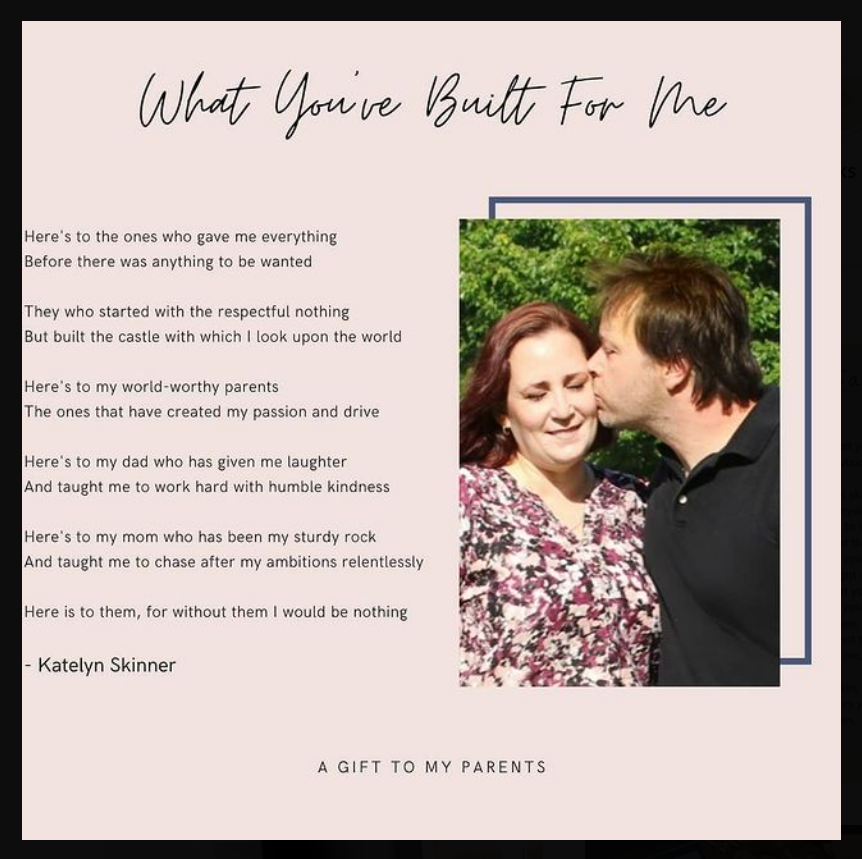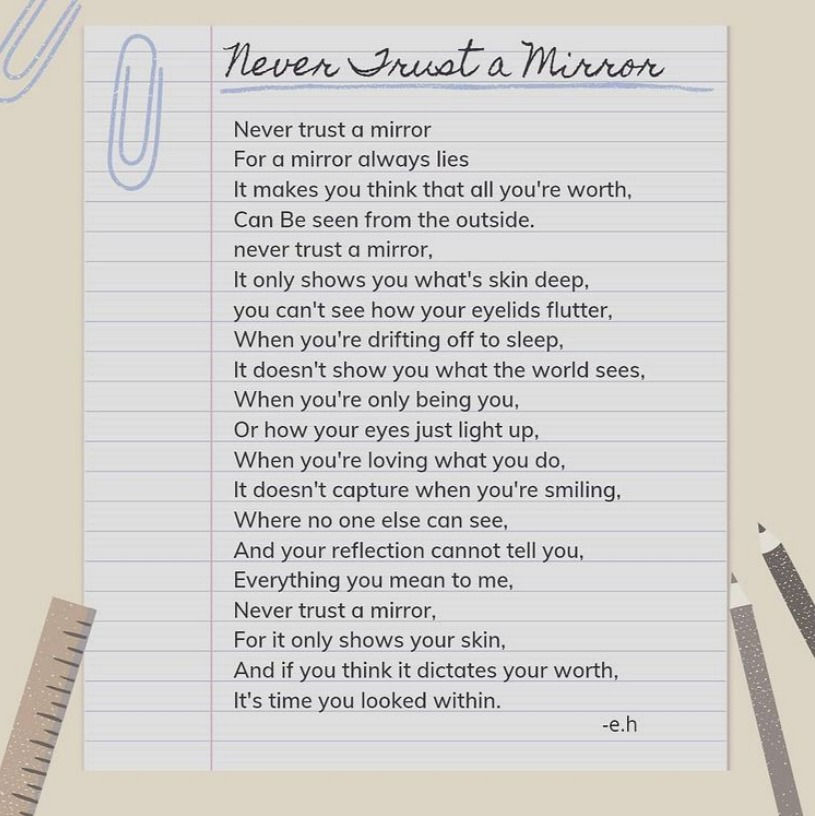Incorporating Poetry in the Classroom
- Katelyn Skinner
- Apr 7, 2021
- 5 min read
My Journey with Poetry
In a previous blog post, I wrote my journey with poetry. But after all, it is a journey and the journey has not ended for me. I have since become increasingly fond of poems and poetry. For me, it has become about feeling the words written instead of trying to decipher what they mean. Like Georgia Heard states in her book, it really is about awakening the heart. In her first chapter she mostly talks about the discovery of poetry and how your soul takes in everyday things in a different way. I've discovered that through reading and writing poetry more often, a new perspective starts taking over that sees things in a different light. The ordinary remote controller to the television is now the device that allows me to explore different realities and worlds with a swift push of a button. The noisy neighbor on the floor above me has now its own poem where I go through the different possibilities in my mind of what they could be doing. Everything is being observed more closely. The feeling of your feet on the ground feels different and has its own haiku. But the things that have already meant something to you are now given a means of communicating it in a deeper and meaningful way.
A "Gift" Poem:
Poetry is written with personal feelings and emotions involved that touch our soul and "awaken our heart" (Heard, 1999). This can lead to creating a poem about a particular person in your life that the poem is dedicated to. This is called a "gift" poem and can can be written in many different styles or formats.
Here is the gift poem I created in honor of my parents. I wanted to create this poem for them because they have been the most fundamental piece of my life. Working together, my mom and dad created this strong support system for me and contributed to it in their own separate ways. They both came from poor families and had to start their lives together from the ground up. While my mom got her college degrees and stayed home watching my brother and I, my dad worked long hours in harsh conditions, often traveling for work. It was difficult for them both but something they both knew was necessary to create a foundation for me to grow up on. They sacrificed a lot to give me a good life and teach me life lessons about working hard and being grateful. This poem is a gift for them.

The "gift" poem can be a prompt for students to use to create their own dedication to someone in their life. Like stated above, the poem can be in any style or format that the students choose. The idea is to choose someone that they have fond feelings for or admire and create a poem leaning on those feelings they have. Maybe the students want to pinpoint a specific memory in their life with the person and write about that. Perhaps they want to write about the particular emotions that person creates for them and write about that. The poem "gift" is open-ended and should be written with the heart.
Poetry in the Classroom:
I believe reading and writing poetry in the classroom frequently can elevate your students' writing exponentially. They might be very reluctant to read and write poetry at first. But with some guided instruction and modeling, they could very well end up loving it. The first step in poetry instruction is reading it! Pick a poem that is developmentally appropriate and at a reading level the class can understand. Read the poem aloud for the students twice. The first time they read it, it should be for pleasure! Once you read it for a second time, students will be able to absorb the words more closely and take in the information. After students have had a chance to listen to it and process it, you can open the floor to having a discussion about the poem.
Discussion Questions:
· What did you notice about the poem?
· What words stuck out to you in the poem?
· How did the poem make you feel?
· Does the poem remind you of anything?
Tip: stay away from questions like "what did the author mean by..." This is going to make students closed off from poetry and not enjoy the process! Once they've gotten the hang of reading and writing poetry more, they might be more open to answering questions like that.
If the students mention that they notice anything such as rhyming or alliteration (vocabulary you want them to know), praise them for it! And ask them to help the class remember what that term means. After the discussion, students are ready to begin the writing process. To start out, it is a great idea to lean on the mentor text to borrow their style of writing or format. Use a guided practice by picking a similar topic with the students to write a poem of their own. You can use a chart to draft out the things you might want to include in the poem before you begin writing. The chart might ask things that the topic reminds students of, what it looks like, how it feels, or emotions it surfaces. Use those words and phrases to guide the writing as the class looks back on the mentor text for writing style.
By the end, you might have something that looks like this:

After students have finished the guided practice lesson, it is time for them to write a poem independently! Have them choose their own topic and use the same drafting methods they did during the guided practice to help them form ideas.
Last but not least, allow them to share their final work and celebrate their pieces with their classmates! This can be in a small group or in front of the class. They can share a piece of their poem or the entire thing, whatever makes them feel comfortable. But the idea is to celebrate the work they've done and inspire others with their writing.
Found Poetry:
This is a poem I have recently discovered and grew fond of. It's titled "Never Trust a Mirror" by Erin Hanson. After doing more research on this poet, I discovered that she is only around 25 years old now in 2021 and started her writing at about 11 years of age. She is known for writing the famous phase “What if I fall? Oh but my darling, what if you fly?” I became quite attached to her writing as I discovered more and more from her. After you read "Never Trust a Mirror", check out more of her writing on her Instragram page, thepoeticunderground.

References
Heard, G., (1999). Awakening the Heart: Exploring Poetry in Elementary and Middle School. Heinemann Publishers.




Comments